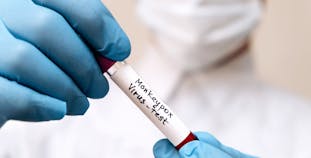Advance Online

Advance Online
NPF Monkeypox Q&A
The NPF Medical Board addresses key questions about monkeypox for people living with psoriatic disease.

The NPF Medical Board addresses key questions about monkeypox for people living with psoriatic disease.
We use cookies to offer you a better experience and analyze our site traffic. By continuing to use this website, you consent to the use of cookies in accordance with our Privacy Policy.